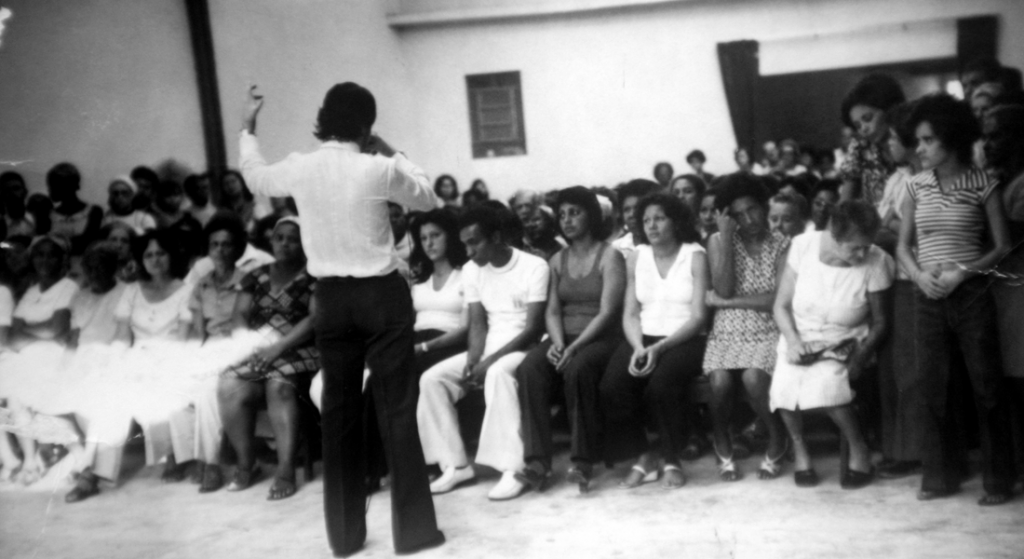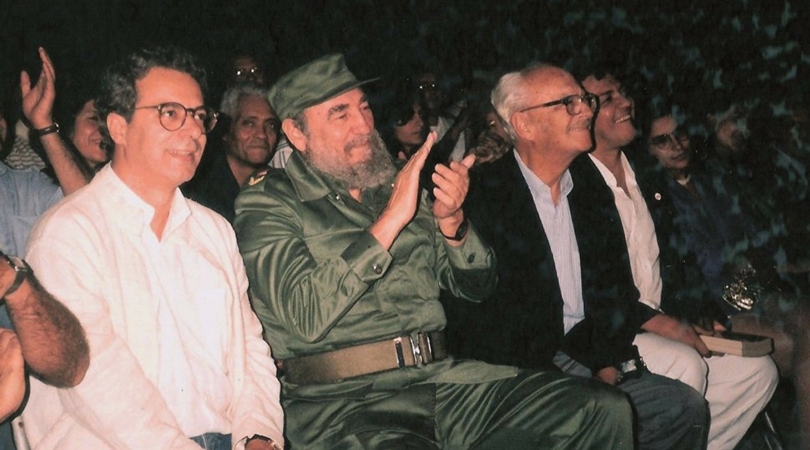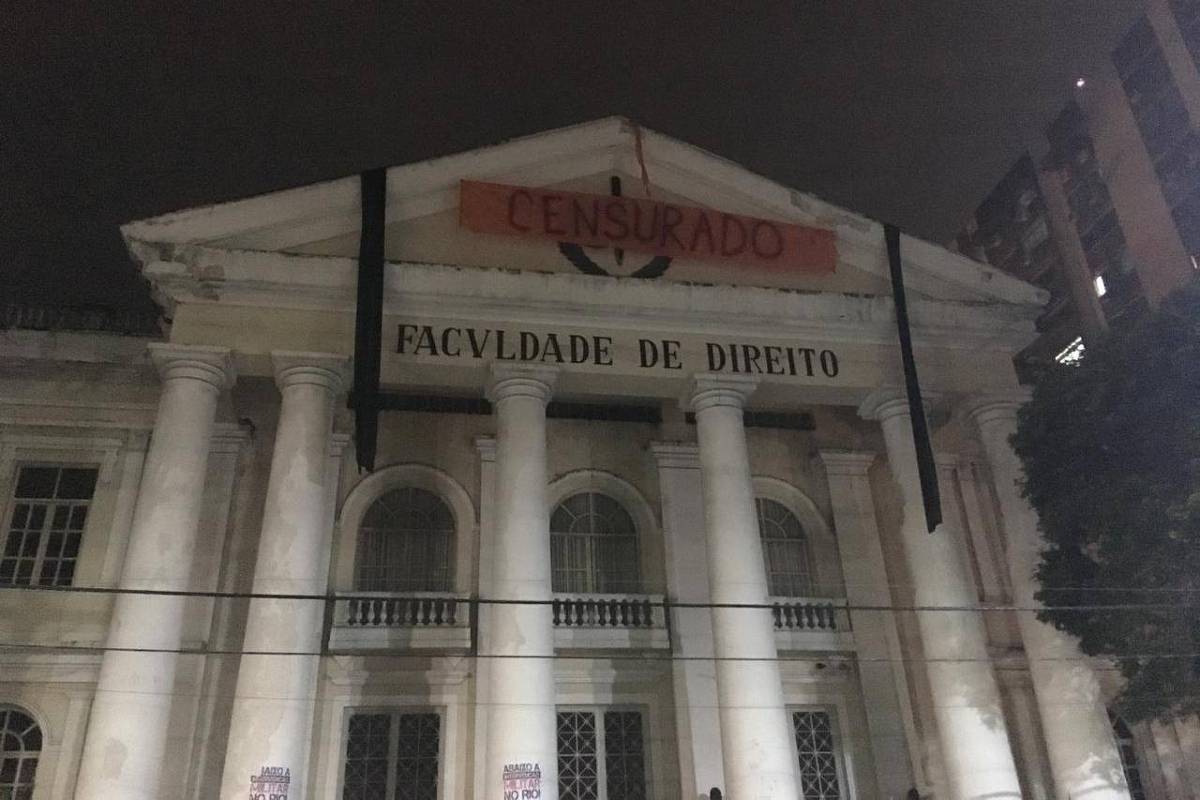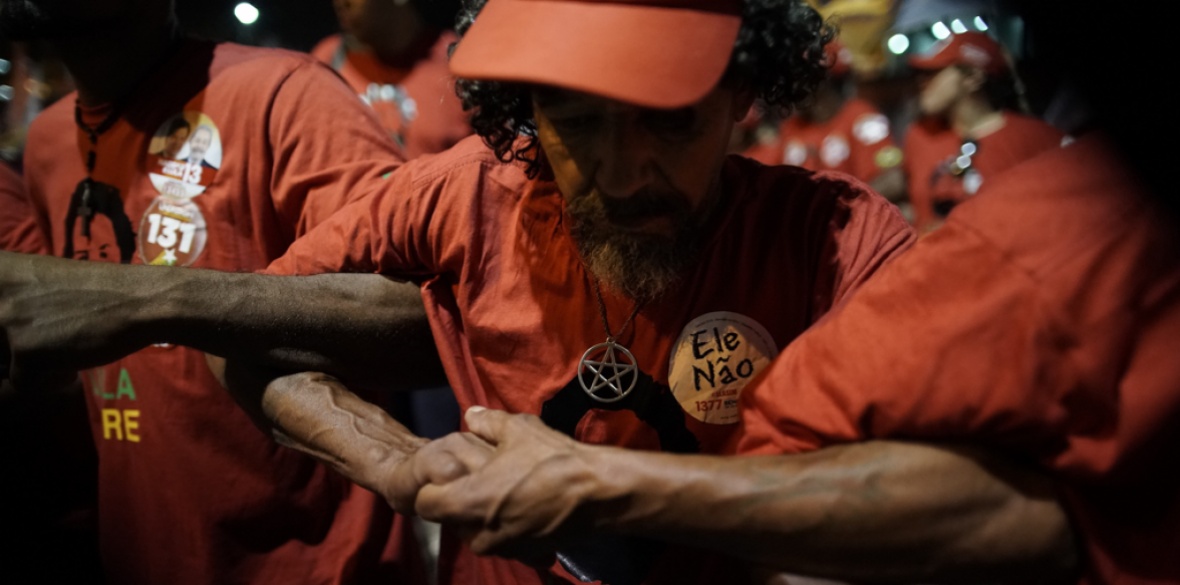A fifty year foreign battle to combat Catholic Liberation Theology in Brazil promises rich rewards for the vested interests which initiated it, at great human cost.
A fifty year foreign battle to combat Catholic Liberation Theology in Brazil promises rich rewards for the vested interests which initiated it, at great human cost.
“Brazil is at the vanguard of the global trend of the Pentecostalization of Christianity,” as well as “the epicenter of world Christianity, with the largest Pentecostal population” says Andrew Chesnut, author of Born Again in Brazil.
From 9% in 1991 to 30% of the population in 2017, the rapid expansion of Neopentecostalism in Brazil since its arrival in the 1970s has caused unease amongst socially liberal sectors of society. Rarely spoken about is how the story began fifty years ago, and how the country is increasingly living with the repercussions of decisions made far away, all those years ago.
In 1969, then New York Governor, and soon to be Vice President, Nelson Rockefeller, was dispatched to Latin America in the capacity as special envoy for President Nixon. The visit was to assess what was seen as the failure of Kennedy’s so called “Alliance for Progress” initiative in the region.
In ‘United States Penetration of Brazil’, Jan K. Black writes “It is interesting to note that in 1969, the year when U.S. economic assistance was suspended for a few months in “cosmetic” protest against the dramatic tightening of the dictatorial noose signified by the dissolution of the Congress in December 1968 and the promulgation of the Fifth Institutional Act (AI-5), the number of Brazilian policemen brought to the United States for training almost tripled that of the previous year. The number of Brazilian military trainees in the United States also increased that year and was, in fact, higher than at any other time in the post war period. The marked expansion of the training program also coincided with an increase in documented reports of the systematic torture of political prisoners and of the murders of petty criminals, as well as alleged subversives, carried out by the “Death Squads,” reportedly composed of off-duty policemen. (New York) Governor Nelson Rockefeller, as President Nixon’s special envoy in Brazil and other Latin American countries in 1969, was uninformed, unconvinced, or unconcerned about these reports. Rockefeller recommended that “the training program which brings military and police personnel from the other hemispheric nations to the United States and to training centers in Panama be continued and strengthened.”. The training program to which he referred was that of the notorious School of the Americas, which is now both re-branded and re-tooled as WHINSEC. This agency has been central to the re-configuration of Latin American militaries as glorified police forces, equipped for internal rather than hemispheric defence, since the 1960s.
On his tour, under robust military security, Rockefeller had been met with violent anti-imperialist protests in almost every city he visited, which were often subject to media blackout.
Following his southern trip, Nelson prepared the “Rockefeller Report on Latin America” which is an important document in many ways, not least that it identified Catholic Liberation Theology as a threat to the National Security of the United States.
Under the heading ‘The Church’, the report states that “Modern communications and increasing education have brought about a stirring among the people that has had a tremendous impact on the Church, making it a force dedicated to change – revolutionary change if necessary. Actually, the Church may be somewhat in the same situation as the young – with a profound idealism, but as a result, in some cases, vulnerable to subversive penetration; ready to undertake a revolution if necessary to end injustice but not clear either as to the ultimate nature of the revolution itself or as to the governmental system by which the justice it seeks can be realized.”
In a section ‘Changes in the Decade Ahead’ the report warns “Clearly, the opinion in the United States that Communism is no longer a serious factor in the Western Hemisphere is thoroughly wrong. We found almost universally that the other American republics are deeply concerned about the threat that it poses to them – and the United States must be alert to and concerned about the ultimate threat it poses to the United States and the hemisphere as a whole.”
It goes on to predict that “Growing nationalism, across the spectrum of political groupings, which will often find expression in terms of independence from U.S. domination and influence…”
To counter that threat to US interests, a recommendation was the export of a socially conservative counterpoint to left leaning Liberation Theology, with emphasis on the individual and economic liberalism or “prosperity theology”. This would take the form of US-style Evangelical churches, with which the spread of emancipatory politics through Catholicism could be halted and even reversed, less they jeopardise US strategic and corporate interests.

Igreja Universal, Rio de Janeiro 1977
Eight years later in 1977, the pioneering prosperity theology-based Universal Church of the Kingdom of God was founded by Brazilian Pastor Emir Macedo, who had recently converted to Evangelical faith, and lauded the philosophies of Nelson’s grandfather John D. Rockefeller. The church’s first service was held on July 9 that year, in a suburb of Rio de Janeiro to a congregation of 200. 40 years later its membership in Brazil stands at around 2 million, of a 8 million worldwide total.
In 1979, the first Santa Fe document advised the incoming Reagan administration that it had to do something decisive about the threat posed by Liberation Theology. The administration heeded the advice, and responded both militarily and ideologically. Reagan’s military strategy against liberation theology ushered in what Noam Chomsky describes as the first religious war of the 21st century. It was the war of the United States against the Catholic Church in Latin America whose bishops, as noted earlier, had together dared to affirm a “preferential option for the poor” as their official position.
It was at this time, with the return to a multi-party system in Brazil, the Workers Party, or PT was formed by a coalition of Trade Unionists such as future President Lula da Silva, Marxist Intellectuals, and key figures from Brazilian Liberation Theology like Leonardo Boff and Frei Betto. The PT initiated the Diretas Já movement which brought about the end of Military rule in 1985.

Brazilian Liberation Theologist Frei Betto with Cuba’s Fidel Castro
By 1987, the Latin American Military Chiefs of Staff meeting in conference in Mar del Plata, Argentina, devoted several pages of their final report to Liberation Theology and the threat it posed to regional stability. The targeting of Liberation Theologians led to thousands upon thousands of deaths across the continent. By the 1990s, with the southern cone re-democratised, and given a Neoliberal fever by the Bush Senior administration and IMF, these new Evangelical Churches and Missionaries had spread rapidly across the region, along with allegations of CIA connivance.
Thy will be done
The book by Gerard Colby & Charlotte Dennett ‘Thy will be done: The Conquest of the Amazon: Nelson Rockefeller and Evangelism in the Age of Oil.’ is an exhaustive investigation relating the growth of Neopentacostalism in Brazil, and its relationship to Nelson Rockefeller and US Corporate interests in exploitation of the Amazon. It was triggered by the authors’ trip to Brazil in 1976 to investigate a missionary organization called the Summer Institute of Linguistics (SIL), also known as the Wycliffe Bible Translators, a Rockefeller & USAID funded organisation which had been translating the Bible into hundreds of indigenous languages in Central and South America.
Wycliffe was founded by ultraconservative William Cameron Townsend who worked in tandem with Rockefeller and which the authors accuse of destroying indigenous peoples’ cultural values to abet penetration by U.S. businesses, employing a “virulent brand of Christian fundamentalism that used linguistics to undermine the social cohesion of indigenous communities and accelerate their assimilation into Western culture”. The authors discovered that SIL was effectively a scouting party that surveyed the Amazonian hinterlands for potential sources of opposition to natural resource exploitation such as cattle ranching, clear cutting and strip mining, among native populations. SIL had actively whitewashed massacres of Indigenous groups by Brazil’s Military Regime and even allowed its Jungle Aviation & Radio Service (JAARS) base in the Ecuadoran Amazon to be used by Green Berets who were combing the forest for signs of armed insurgency. Co-author Gerard Colby interviewed by Folha in 1996, in response to criticism of his book from ’64 Coup-conspirator and friend to the Rockefellers, former Ambassador Lincoln Gordon, said “After the coup, not only was Brazil’s destiny undergoing immense change, but the Amazon and The Indians were opened up to even greater genocide. And Nelson Rockefeller knew what was happening inside the country. What does he do? He travels to Brazil in 1969, meets directly with the military leadership, receives the National Intelligence Service report … and next you see Nelson asking for support for what he calls the “New Military” to be the vanguard of development. A Military that would promote things like the Transamazonica Highway. Not surprisingly, in 1972, you read in the New York Times Nelson’s cousin, Richard Aldrich, who was then the president of the Brazil-United States Chamber of Commerce, enthusiastically stating “This road is terribly important for the development of the interior. It is already bringing people and will make raw materials much more accessible to the outside world. “

Trans-Amazonian Highway (BR-230) 1970s
In Uruguayan author Eduardo Galeano’s ‘The Open Veins of Latin America’, he talks about a US-Brazil agreement in 1964 which permitted US Air Force planes to fly over and photograph the Amazon rainforest: “They had used cintilometers to detect radioactive mineral deposits by the emission of light wavelengths of variable intensity, electromagnetometers to radiograph the topsoil rich in non-ferrous minerals, and magnetometers to discover and measure the iron. The reports and photographs acquired in the reconnaissance of the extension and depth of the secret riches of Amazonia were put in the hands of private firms interested in the matter, thanks to the good services of the United States Geological Survey. In the immense region was proven the existence of gold, silver, diamonds, gipsite, hematite, magnetite, tantalium, titanium, thorium, uranium, quartz, copper, manganese, lead, sulfates, potassium, bauxite, zinc, zirconium, chrome and mercury.”
War of the Saints
Some compare the expansion of Neopentecostalism in Brazil to other implanted religions elsewhere, such as the Saudi-sponsored spread of Wahabbism in the Middle East, and with it has grown a radical militancy. Those practicing popular Afro-Brazilian religions such as Candomble and Umbanda have found their places of worship attacked and burned around the country, and find now find little of the protection they once enjoyed from government & authorities. This situation has developed in parallel to the influence that tax-exempt, often extremely corrupt Evangelical churches have developed in Politics, with them now controlling City Hall in Rio de Janeiro, and on the brink of State Governance. In a context in which Rio de Janeiro’s evangelical churches have been accused of laundering money for the drug trafficking gangs, all elements of Afro-brazilian culture including caipoeira, Jango drumming, and participation in carnaval parades, have been banned by the traffickers in many favelas.
During preparations for the 1992 Earth Summit in Rio de Janeiro, Rockefeller Foundation created LEAD (Leadership in the Environment and Development). One of the Brazilian Politicians most closely associated with LEAD/ABDL would be Marina Silva. Former Workers Party and Environment minister under Lula’s first administration, Silva had been an adherent to Catholic Liberation Theology for almost two decades, converting to Evangelicalism in the mid 1990s after a period of illness.
According to their website LEAD have since then “been recruiting talented individuals from key sectors and professions all over the world to be part of a growing network now standing at over 2400 leaders, who are committed to changing the world. Every one of our leaders is a graduate of LEAD’s Fellows Training Program, an intensive and demanding program designed to enhance leadership ability, strengthen sustainable development knowledge and foster the relationships that will continue to support our Fellows in their work. This cross-sectoral, cross-cultural program has been at the heart of LEAD activities across the globe.” “Since 1992, more than 500 professionals have been trained in Brazil, Canada, China, Former Soviet Union, Europe, India, Indonesia, Mexico, Nigeria, Pakistan and South Africa.” The Brazilian branch of LEAD (ABDL) was one of the first, founded in mid-1991 and according to Gazeta Mercantil (06/11/91), “The Rockefeller Foundation intends to invest US $5 million in the next five years in training environmental leaders, with The purpose of preparing opinion makers capable of having a broad view of environmental problems and their economic implications. ” All Binger, LEAD’s international director, said with surprising frankness: “We hope that in ten years many of the fellows will be acting as ministers of environment and development, university rectors and CEOs.”.
The growing Evangelical power base traded support for policy positions throughout the 1990s and 2000s, supporting Lula and Dilma Governments but it was not until 2010 that they had a potential Presidential candidate of their own – Marina Silva, her platform a marketable synthesis of evangelical christianity, environmental campaigning and Wall Street friendly liberalism.
Heiress to COA Member Itaú Bank, brother of Rockefeller’s Trilateral Commission member Roberto, Neca Setubal, was responsible for 84% of funds to Marina Silva’s institute in 2013. Former president of Citibank Alvaro de Souza ran the fundraising for Silva’s 2010 election campaign. Ex-American Chamber of Commerce. Souza had previously served on the boards of such companies as Gol and AmBev, and was chairman of WWF Brazil. In 2008, the WWF, and its President Emeritus, Prince Philip Duke of Edinburgh, awarded Silva with a medal, championing her work on Amazon conservation.
In the lead up to the 2014 election, David Rockefeller’s corporate lobby for the Americas, AS/COA, which specialises in both propaganda and grooming future leaders in the region, hosted an event featuring opposition pair, PSB Presidential Candidate Eduardo Campos and his Vice Silva. Campos would go on to die in an air crash soon after and their subsequent focus on the candidacy of Silva reflected a belief that she was Wall Street and the Obama administration’s favoured candidate, not merely a spoiler candidate for Dilma Rousseff. Marina received an international campaign of media beatification to match, in which she was marketed as the “genuinely progressive” alternative to Rousseff, despite the social conservatism inherent in her evangelical faith.
But in 2018 critical mass for the religion’s once great hope for the Presidency has evaporated, with some of Marina’s base amongst evangelical sectors even transferring directly to a Neofascist with the major churches’ overt support, Jair Bolsonaro.
And those northern Neoliberals who once backed Marina Silva have also joined Neopentecostals in their support for Bolsonaro. The candidate has been holding off record meetings with AS/COA since 2017 at the latest, along with his “Chicago boy” economic advisor and potential Finance Minister, BTG Pactual/Millenium Institute’s Paulo Guedes. These meetings coincided with a road to Damascus style conversion to the rhetoric of free market and minimal state, to follow his switch to the Evangelical faith in 2016, with a show baptism in Israel’s River Jordan.
http://www.brasilwire.com/holy-war/



